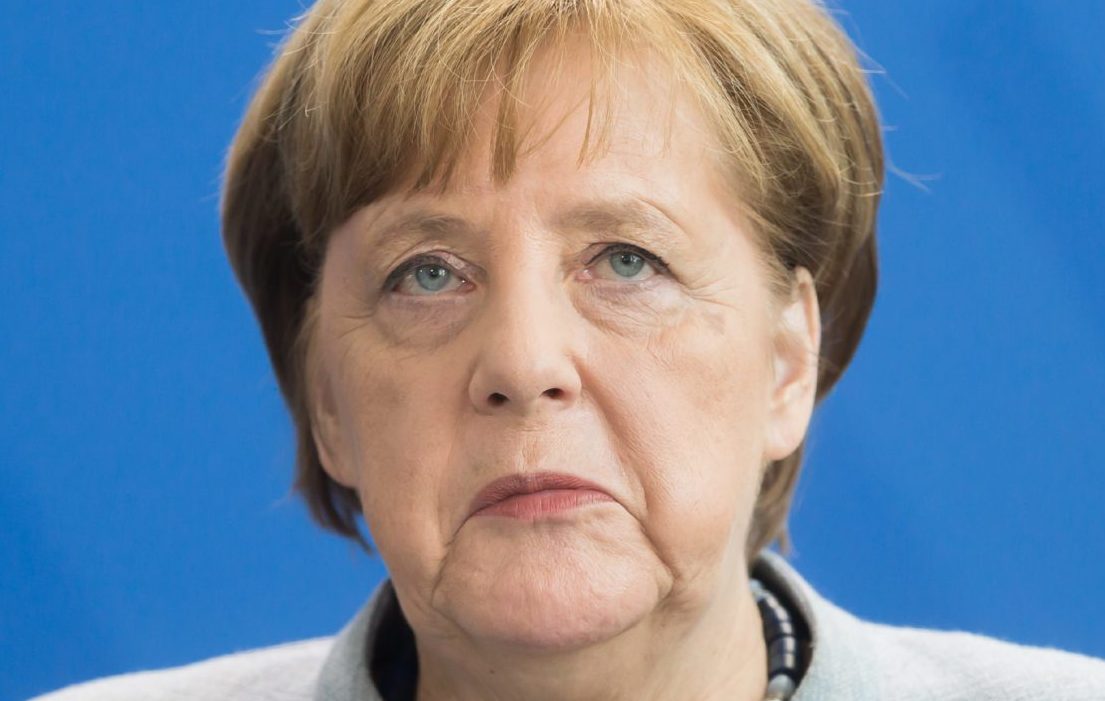Right Liberalism Loses In Germany

Last Sunday, German voters went to the polls to cast their votes in the Bundestag election. The preliminary results reveal how a political party devoted to right liberalism is unsustainable in the end.
As it stands now, the Social Democratic Party (SPD) has captured the highest percentage of the vote share at 25.7% and amounting to 206 seats in parliament. The Christian Democratic Union (CDU), the party of German Chancellor Angela Merkel who decided not to run for a fifth term as chancellor, captured 18.9% of the vote. The CDU’s partner, the Christian Social Union (CSU), captured another 5.2% of the vote, granting CDU/CSU a total of 196 seats—50 fewer than they were given in 2017. After briefly taking the lead in the polls in the spring, The Greens came back to earth. However, The Greens grew their vote share by nearly six points and their caucus by 51 seats, securing their best ever election result. Alternative for Germany (AfD), Germany’s right-wing populist, Eurosceptic party founded by CDU defectors, got 10.3% of the vote, 2.3% less than it did in 2017, and lost a total of 11 of its 94 seats.
Just a few months before the election, the SPD seemed to be drawing dead with little chance of controlling the post-Merkel years. Polls as late as July 28 showed the SPD was in a double digit hole to the CDU and a few points behind The Greens. Surely, massive rains that caused flooding and other disasters that killed well over 200 people and a series of blunders from Armin Laschet, the CDU’s new leader and a relatively unpopular figure compared to the exiting Merkel, played their part in the undoing of the CDU.
However, this telling of the election results in Germany is incomplete. For those not familiar with German politics, it’s analogous to the narrative that emerged shortly after the U.S. presidential election in 2016 when the American left claimed Donald Trump would not have won had then-FBI Director James Comey not held a press conference about the FBI’s investigation into Hillary Clinton’s emails days before the election. This version of the 2016 presidential election ignores policy decisions from both parties, such as “free” trade deals, high levels of immigration, and wars of choice, that hollowed out the American heartland and resulted in Trump’s victory. Chalking up the CDU’s loss to flooding and a poor candidate is myopic, and leaves out fundamental flaws prevalent not only in center or center-right parliamentary parties across Europe, but is also prevalent among some members of the Republican caucus in our two-party system at home.
The CDU was founded in the immediate aftermath of World War II, seen as a successor to the Catholic Centre Party of the Weimar era. In those early days, the CDU defined itself as a classically liberal party with center-right economic tendencies, pro-European and anti-nationalist sentiments. Since then, the CDU has enjoyed fair amounts of control over the country, as five of the eight German chancellors in the post-war era have been members of the CDU.
Meanwhile, imperializing forces of liberalism have taken a stronger hold over the party’s direction. This has been especially true over the course of the Merkel years.
Over her tenure, Merkel increasingly bought the lie espoused by right-liberals that if the right wants to remain politically relevant in a world where the arc of progress is ever-rising, demographics are rapidly, and religiosity is declining, then the right must dump the parts of their platforms devoted to upholding tradition and cultural values.
Thus, Merkel moved the CDU towards the center of the German political spectrum, and formed coalition governments with Social Democrats for three of her four terms. This shift was reflected in Merkel’s policies over her tenure, such as Germany’s response to the 2015 migrant crisis, the Nord Stream projects, climate change and energy policy, trade and investment deals she struck with China, and her favorable attitude towards the European Union.
Overtime, Merkel changed the CDU into a party for secularism, consumerism, and big business. This alienated members of the CDU’s base like Christian families, blue collar workers, and members of rural communities, which can partially explain the rise of AfD—founded by CDU defectors.
What the CDU lost from its traditional base, it gained in support from lukewarm liberals, which is why Merkel was able to retain power for herself and the CDU for four consecutive terms. But, this “big tent” version of the CDU has proven to be more of a house of cards. Its success, it seems, has more to do with her own popularity than the popularity of the modern CDU platform. Without her, “The C.D.U. is hollowed out: it has no leadership and no program,” author and German political scientist Herfried Münkler told the New York Times. “The essential ingredient has gone — and that is Merkel.”
When Merkel’s name did not appear on the ballot Sunday, the aforementioned lukewarm liberals, known for their propensity to cave from social pressures from the hard left, defected from the CDU by the millions. Two million voters switched from CDU to SPD, and another million defected to an even further left party in The Greens or an even more pro-business party in the Free Democrats.
The election results “ha[ve] raised a question about our very identity,” Norbert Röttgen of the CDU told ARD Monday. Rightfully so.
The great irony of Merkel’s CDU, as with other right-liberal parties, is their quest for relevance ends with their irrelevance. I don’t want to overreact and say the CDU is done for. It’s not. But, when the CDU does return to power, it won’t be because the CDU has rediscovered the importance of culture, family, and tradition—it will be because it finally sheds its pretenses of being on the right at all.
Comments